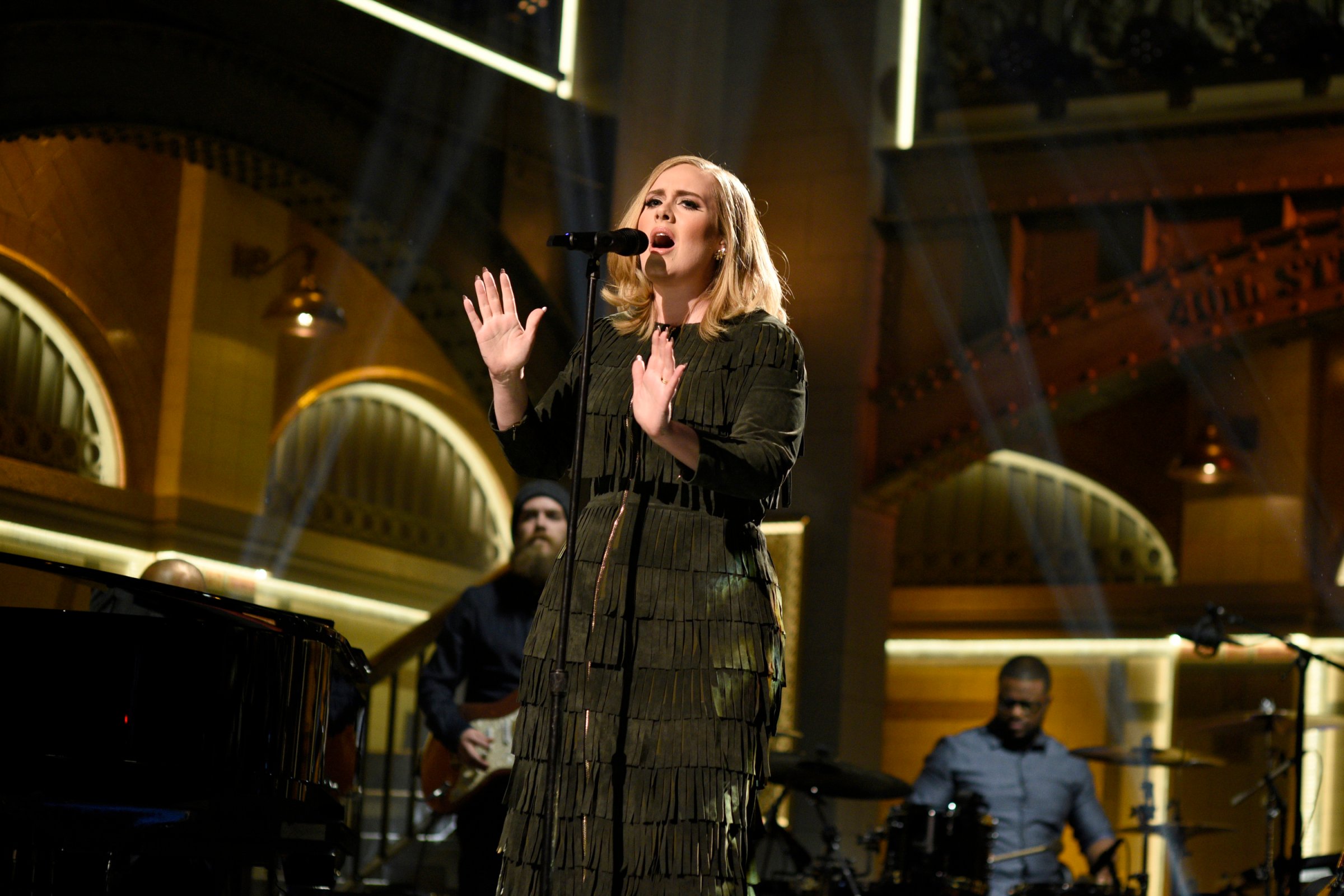
At midnight on November 15, in an email inbox on the seventh floor of London’s New Broadcasting House, a secret ballot drew to a close—and the fate of the planet’s next music superstar was sealed.
That’s the theory, anyway. Since 2003, the BBC has been running its annual Sound Of… poll, in which over 100 music industry tastemakers are invited to predict the biggest stars of the next twelve months. Previous winners include Sam Smith, Haim, Ellie Goulding and Jessie J, as well as a certain north-London singer whose latest release 25 is currently selling pretty well. (You might have heard of her.) Each of those acts, incubated in the UK, has gone on to enjoy significant international success, including dominating charts in America.
In fact, the poll has proved so effective at predicting (and dictating) future popularity that major-label artist launch strategies have shifted to fit in with the poll’s timelines, but the BBC’s poll has strict rules. To qualify, acts must not have independently hit the Top 20 in the UK, and they can’t have been shortlisted in previous years. Recent TV talent show winners are banned.
But the next Adele could be among the fifteen acts on the 2016 longlist published today, ahead of a week-long reveal of the Top 5 next January. These include chaotic indie pop hopeful Rat Boy, soulful soloist Izzy Bizu and elegant pop superstar-in-waiting Dua Lipa (who’s managed by the team behind Lana Del Rey), but only one traditional guitar band—Manchester-based five-piece Blossoms. Mabel (daughter of 80s/90s singer Neneh Cherry) also features, along with Alessia Cara, who’s already cracked the Top 10 stateside with her single “Here.”
Those acts’ inclusion on the Sound Of 2016 long list will have prompted sighs of relief at their respective record labels, not least because high-placing Sound Of… acts are tacitly guaranteed support and airplay across BBC radio stations like Radio 1 and Radio 2—the UK’s most influential stations.
As a public service broadcaster, the BBC has strict rules on the promotion of commercial interests, but the self-fulfilling prophecy of a high place in the Sound Of… poll serves as a valuable launchpad to record labels. And while the first Sound Poll came and went in 2003 with little fanfare—it was won by 50 Cent—in subsequent years, as its influence grew, it became open to manipulation.
“Going for the Sound Poll” entered the label boardroom lexicon, with a place in the poll requiring plenty of planning. The BBC publishes a list of each year’s voting tastemakers, so it’s always been easy for labels and publicists to target key voices ahead of the next year’s voting period, but “going for the Sound poll” also tends to require a release strategy of drip-fed music—deliberately low-key to avoid hitting the Top 20 and rendering an artist ineligible—as well as swelling press coverage, key live dates and, often, a guest spot on another artist’s release.
Taking that latter point to its extreme, by the time of the Sound Of 2014 poll, Sam Smith had already appeared as a featured vocalist on one UK Number One (Naughty Boy’s “La La La”), and scored another hit (Latch) with Disclosure. Sam Smith was already one of the most-heard voices on UK radio; his Sound poll win was regarded by many as little more than a formality.
But it’s also worth also noting that in recent years, as more and more artists attempt to secure a place on the Sound Of… longlist, many labels and management teams have found that it can be beneficial to swerve the competition altogether, actively avoiding the Sound Poll timeline. Artists like Ed Sheeran and Emeli Sandé have achieved multi-platinum success on both sides of the pond without any Sound Of… endorsement, taking their launches at their own pace. Some winners, meanwhile, have spoken of the unwelcome pressure that comes with a Sound Of… triumph. 2009’s winner, Little Boots, subsequently mused on her supposed ‘failure’ to deliver a string of Number One singles on the back of her Sound poll launchpad.
Still, for many of this year’s shortlisted artists, a Sound Of 2016 win in January could still be their best shot at future hugeness, given how many artists have gone on to international superstardom. With its global impact, and having partially gamified the consumption of new music by introducing an element of jeopardy in its January countdown format, the BBC Sound Poll has helped make new music seem exciting for mainstream audiences who are, in general, resistant to new music and quite happy with the artists they already know. Even if all those artists were, at one point, new themselves.
More Must-Reads from TIME
- L.A. Fires Show Reality of 1.5°C of Warming
- Behind the Scenes of The White Lotus Season Three
- How Trump 2.0 Is Already Sowing Confusion
- Elizabeth Warren’s Plan for How Musk Can Cut $2 Trillion
- Why, Exactly, Is Alcohol So Bad for You?
- How Emilia Pérez Became a Divisive Oscar Frontrunner
- The Motivational Trick That Makes You Exercise Harder
- Zelensky’s Former Spokesperson: Ukraine Needs a Cease-Fire Now
Contact us at letters@time.com